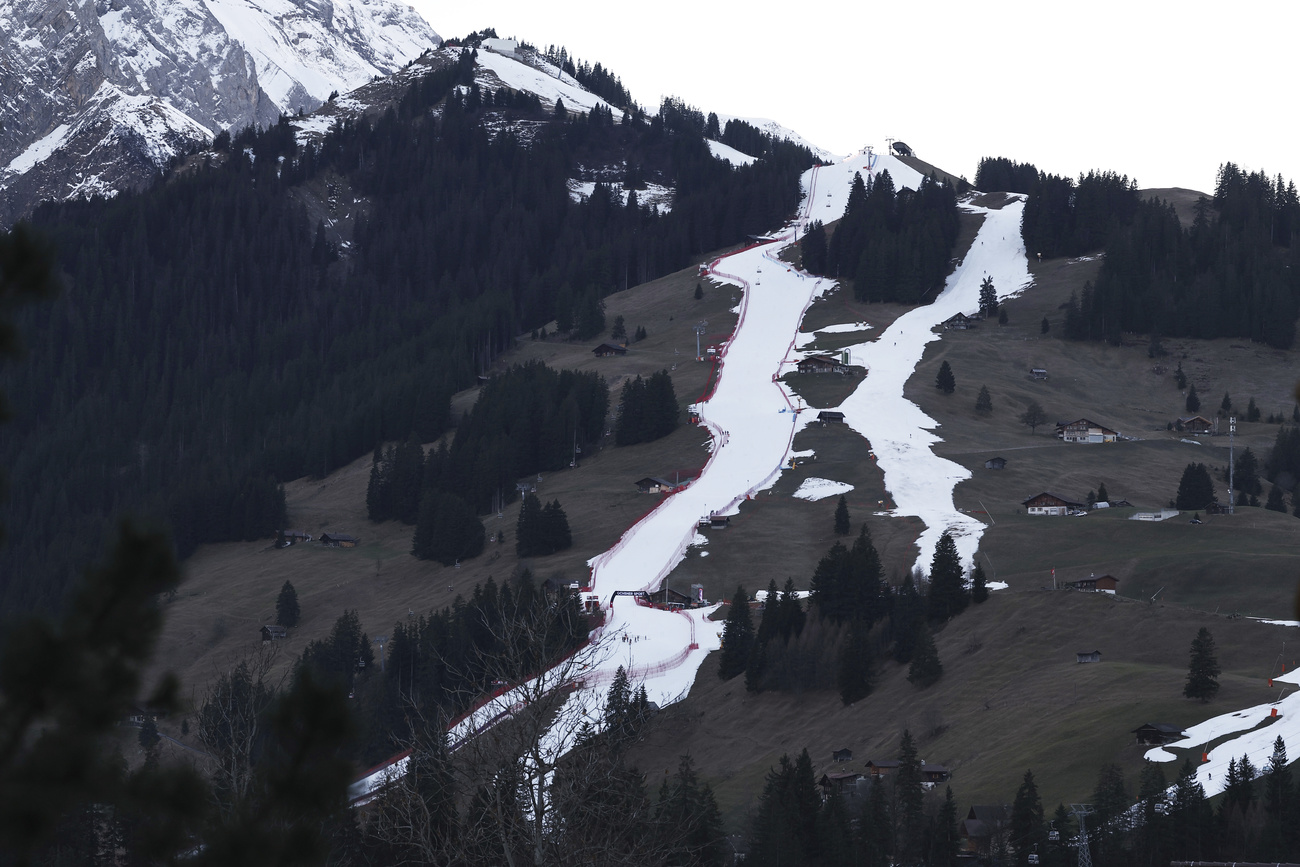
Great uncertainty about snow in Swiss ski resorts

A third of Swiss ski resorts face a very high risk of snow shortage if the climate warms by two degrees Celsius. Across Europe, even more than half of all ski resorts would be affected. This is what researchers predict in the scientific journal Nature Communications.
The study published on Monday by researchers from France and Austria examined the situation of 2,234 ski resorts in 28 European countries. Among them are 203 ski resorts in the Swiss Alps with a total area of 144 square kilometres.
+Swiss ski resorts struggle with snow shortage and record temperatures
The researchers defined a very high risk of snow shortage as a year with little snow every two years. At four degrees, according to the modelling, practically all ski areas would have a very high risk of insufficient snow. In Switzerland, 99% of ski areas would run out of snow without artificial snowmaking.
According to the analysis, if the temperature increase were limited to 1.5 degrees, 5% of ski resorts in the Swiss Alps would be at high risk. Across Europe, this would already be 32%.
Artificial snowmaking
According to the analysis, artificial snowmaking could significantly reduce the risk of snow shortages. But artificial snowmaking also has its limits: With a snowmaking rate of 50%, around 27%of ski resorts across Europe would still be affected by a very high risk of snow shortage if the climate warmed by two degrees, and as much as 71% if the climate warmed by four degrees.
+Winter energy woes cast shadow over Swiss ski season
In the Swiss Alps, five (with two degrees of climate warming) and 38% (with four degrees of warming) of ski areas would be affected by a very high risk of snow shortage. In the Swiss Alpine region, 53% of all pistes can be covered with artificial snow, according to figures from the Federal Statistical Office from 2021. A snowmaking rate of 50% is therefore close to reality. However, the production of artificial snow also increases the demand for water and electricity, as the researchers pointed out in the study.
While the authors emphasise that the snowmaking predictions are based on simplified assumptions and that their results should not be considered definitive, they do offer ways of assessing the impact of artificial snowmaking. Nevertheless, they offer opportunities to better consider the impact of climate change on the ski tourism industry.
More
This news story has been written and carefully fact-checked by an external editorial team. At SWI swissinfo.ch we select the most relevant news for an international audience and use automatic translation tools such as DeepL to translate them into English. Providing you with automatically translated news gives us the time to write more in-depth articles. You can find them here.
If you want to know more about how we work, have a look here, and if you have feedback on this news story please write to english@swissinfo.ch.

In compliance with the JTI standards
More: SWI swissinfo.ch certified by the Journalism Trust Initiative





























You can find an overview of ongoing debates with our journalists here . Please join us!
If you want to start a conversation about a topic raised in this article or want to report factual errors, email us at english@swissinfo.ch.